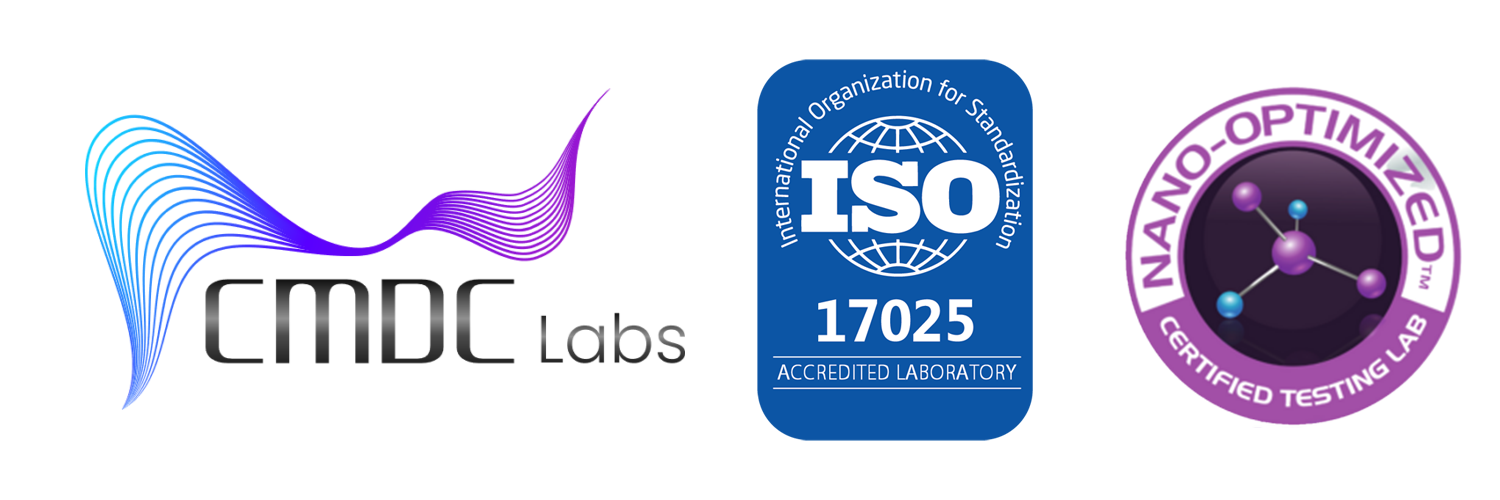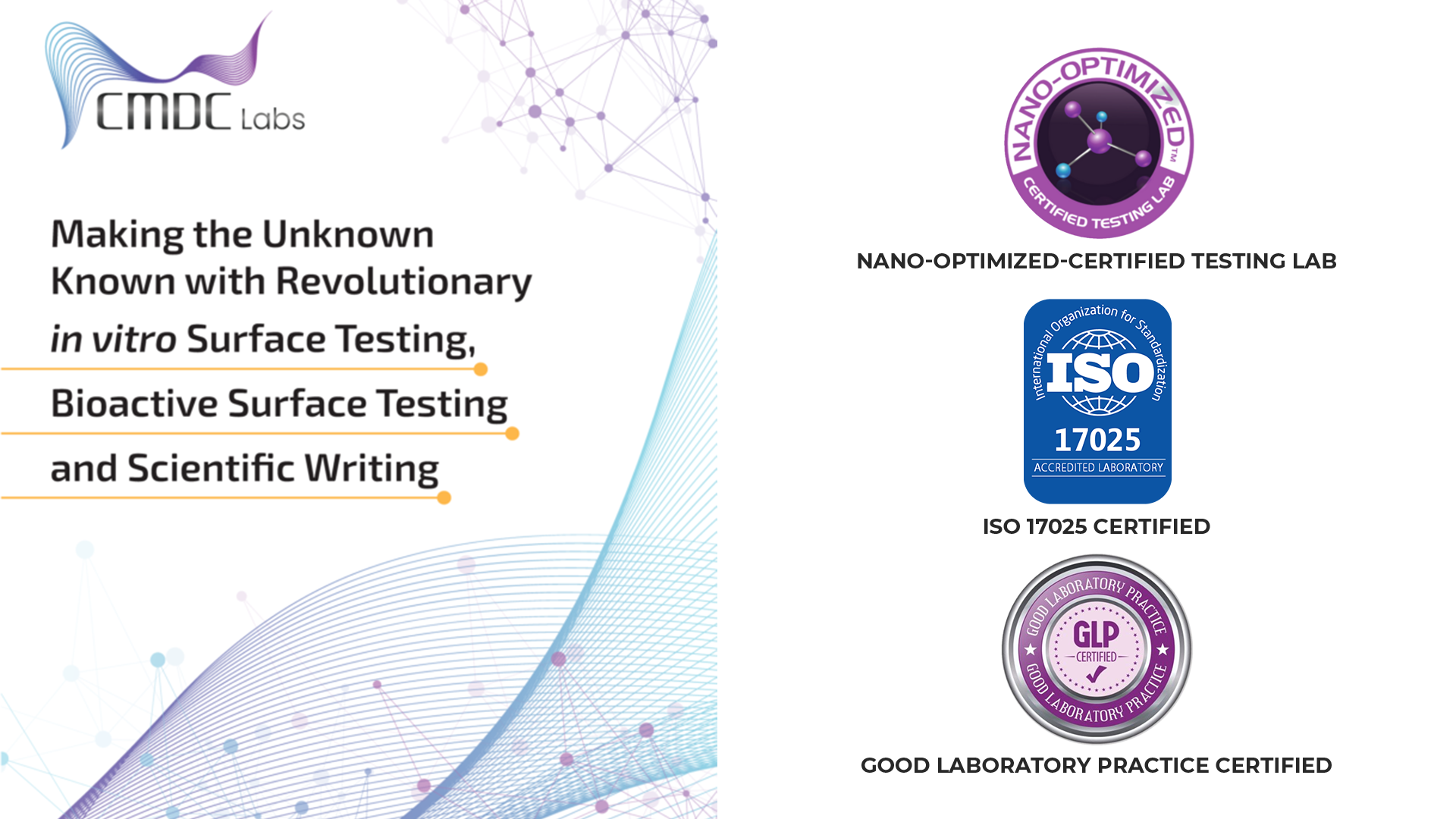In September 2025, the U.S. Food and Drug Administration (FDA) issued a cautionary update to the medical device industry: unreliable third-party testing data is putting both compliance and patient safety at risk. For medical device manufacturers, this warning is not just a regulatory headline—it’s a call to strengthen validation pipelines, ensure sterility assurance, and partner with accredited laboratories that can deliver defensible, ISO-standard results.
At CMDC Labs (Longmont, CO), we understand the stakes. Medical devices—from breathing circuits to surgical implants—can only be trusted when the science behind their testing is uncompromised. This article explores the FDA’s concerns, why unreliable outsourced data threatens medtech innovation, and how CMDC Labs’ accredited testing services give manufacturers the credibility and protection they need.
Why the FDA Is Concerned About Third-Party Data
The medical device industry often relies on third-party laboratories for critical testing, including:
- Sterility assurance
- Biocompatibility evaluations
- Extractables and leachables (E&L) studies
- Material composition and degradation assessments
But the FDA has identified rising instances where:
- Methods were not validated to industry standards.
- Results were inconsistent or incomplete.
- Data integrity controls were weak or absent.
- Reports lacked traceability to the actual samples tested.
These gaps create regulatory blind spots. Devices that appear compliant on paper may, in fact, pose risks to patients if the supporting data cannot withstand scrutiny.
Risks of Unreliable Outsourced Data
1. Patient Safety Compromised
At the core of medtech is patient trust. A catheter, orthopedic implant, or breathing circuit that hasn’t been properly validated can introduce infections, toxic leachables, or performance failures. Flawed data means these risks go unnoticed until harm occurs.
2. Regulatory Fallout
If FDA reviewers or inspectors detect irregularities in test reports, manufacturers face:
- Warning letters or 483 observations.
- Delayed or denied approvals (510(k), PMA submissions).
- Recalls or market withdrawals.
3. Reputational Damage
For device companies, one invalidated data set can erode years of brand trust. Investors, healthcare providers, and patients are quick to pivot when safety or credibility is questioned.
The CMDC Labs Advantage: Defensible Science
At CMDC Labs, we provide ISO 17025-accredited testing built on validated methods, rigorous quality control, and transparent reporting. Our commitment is to ensure that every data point stands up to regulatory review and protects patient outcomes.
🔬 Sterility Assurance
We test for microbial contamination risks using AOAC-validated methods. Our sterility testing covers:
- USP <71> Sterility Tests for medical devices.
- Bioburden analysis to quantify microbial loads pre-sterilization.
- Endotoxin (LAL) testing to verify pyrogen safety.
🧪 Extractables & Leachables (E&L) Testing
Modern devices often contain polymers, coatings, and adhesives. Over time, these materials may release chemicals into patients’ bodies. CMDC Labs specializes in:
- Chemical characterization under ISO 10993.
- Simulated-use leachables studies using physiologically relevant solvents.
- Analytical methods (GC-MS, LC-MS, ICP-MS) for ultra-trace detection.
🧬 Biocompatibility and Toxicology Support
Partnering with toxicologists, we provide in vitro safety evaluations and chemical risk assessments that align with FDA and ISO requirements.
📊 Data Integrity and Trend Analysis
Every result comes with clear documentation, traceability, and long-term data trending support—giving device companies confidence not just in a single test, but in their entire compliance strategy.
Why Accreditation Matters
Not all labs are equal. The FDA warning underscores the danger of relying on unaccredited providers whose methods lack validation.
- ISO 17025 accreditation ensures CMDC Labs operates under internationally recognized standards for technical competence and data integrity.
- AOAC compliance provides credibility with regulators and auditors worldwide.
- Independent status means CMDC’s results are impartial—not tied to internal pressures within device companies.
Practical Steps for Medtech Firms
In light of the FDA’s warning, medical device companies should:
- Audit their current lab partners for accreditation, method validation, and data integrity practices.
- Request raw data and chain-of-custody documentation to ensure traceability.
- Avoid sole reliance on lowest-cost providers—data credibility is more valuable than short-term savings.
- Develop a multi-tiered testing plan that combines rapid screening with confirmatory, accredited lab testing.
- Invest in proactive validation—test devices early in the R&D process to avoid late-stage regulatory setbacks.
How CMDC Labs Supports Innovation with Compliance
At CMDC Labs, we see testing as more than a regulatory checkbox—it’s a strategic enabler of innovation. Our partnerships with medtech companies help ensure that devices:
- Enter the market faster with clean, defensible data.
- Avoid regulatory delays linked to questionable third-party results.
- Build patient and provider trust through validated safety and performance.
By blending scientific rigor, accredited methods, and customer-focused collaboration, CMDC helps manufacturers navigate regulatory demands without compromising speed or safety.
Conclusion: Reliability Is Non-Negotiable
The FDA’s warning about unreliable third-party test data is a reminder that safety and science cannot be outsourced cheaply. In medtech, data is not just paperwork—it’s the foundation of patient trust and regulatory approval.
At CMDC Labs (Longmont, CO), we provide more than numbers. We provide assurance—assurance that every test, every result, and every report can withstand scrutiny, protect patients, and support the next wave of medical device innovation.
When it comes to validation, sterility, and extractables testing, the message is clear: credible data saves lives—and protects reputations.
Sources: InCompliance Magazine report on FDA warning about unreliable third-party device data (Sept 2025); U.S. FDA medical device quality system regulations; ISO 17025 and ISO 10993 standards; AOAC International method validation guidelines; peer-reviewed research on sterility assurance and extractables/leachables testing.

